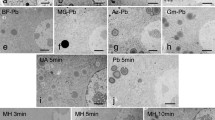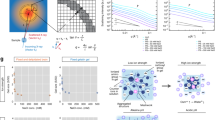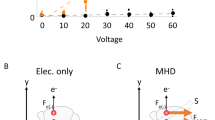Abstract
IT is well known that the sudan and related dyes used for demonstrating lipids in histochemical technique dissolve in the lipid and can be re-extracted with fat solvents. Such oil-colorants are more soluble in oil than in the solvent used, and if an oil is shaken with a great excess of colorant solution, the oil will become saturated with colorant. Gomori1 has introduced triethyl phosphate as a solvent for oil colorants in histochemistry for it has the advantage of being miscible with water. If the colorant is dissolved in triethyl phosphate, therefore, excess colorant may be removed by addition of water without re-extraction of colorant from the oil. The amount of oil will be proportional to the amount of colorant dissolved, and this may be measured photometrically.
This is a preview of subscription content, access via your institution
Access options
Subscribe to this journal
Receive 51 print issues and online access
$199.00 per year
only $3.90 per issue
Buy this article
- Purchase on Springer Link
- Instant access to full article PDF
Prices may be subject to local taxes which are calculated during checkout
Similar content being viewed by others
References
Gomori, G., Microscopic Histochemistry (Chicago, 1952).
Author information
Authors and Affiliations
Rights and permissions
About this article
Cite this article
DALES, R. A Colorimetric Method for the Quantitative Measurement of Total Lipids in Tissues. Nature 197, 1120–1121 (1963). https://doi.org/10.1038/1971120a0
Issue Date:
DOI: https://doi.org/10.1038/1971120a0
This article is cited by
Comments
By submitting a comment you agree to abide by our Terms and Community Guidelines. If you find something abusive or that does not comply with our terms or guidelines please flag it as inappropriate.



